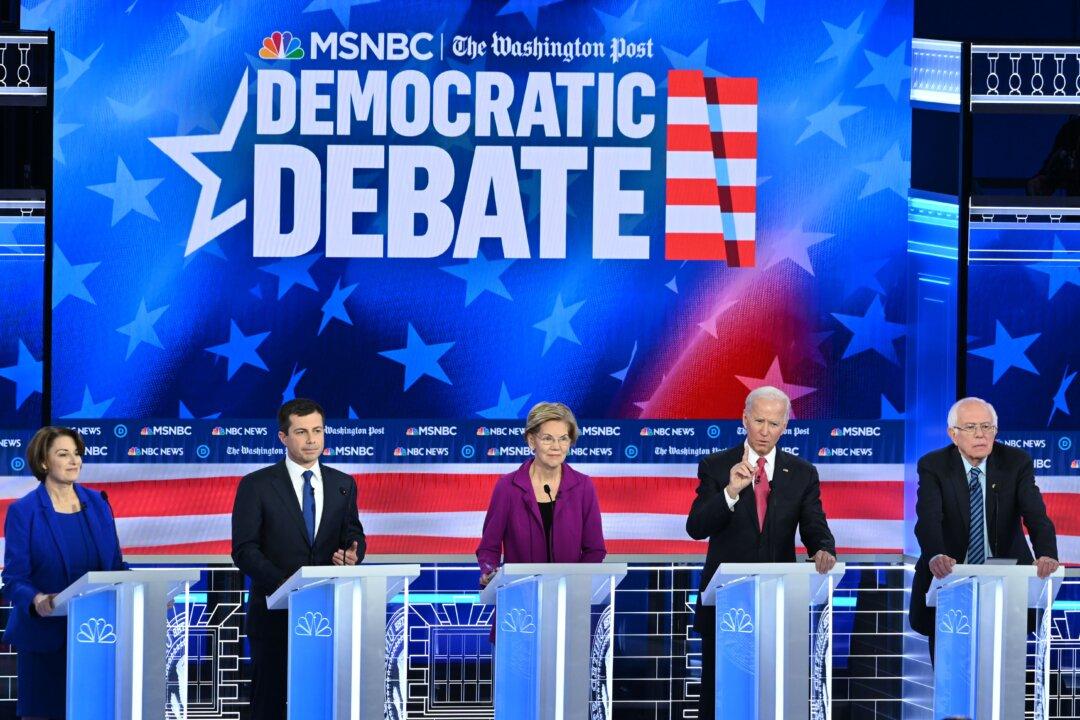The Nov. 20 Democratic presidential debate captured only 6.6 million viewers, by far the lowest number in the 2020 cycle.
The debate, hosted by MSNBC and the Washington Post, drew 6.6 million viewers, according to Nielsen.


The Nov. 20 Democratic presidential debate captured only 6.6 million viewers, by far the lowest number in the 2020 cycle.
The debate, hosted by MSNBC and the Washington Post, drew 6.6 million viewers, according to Nielsen.